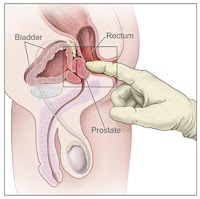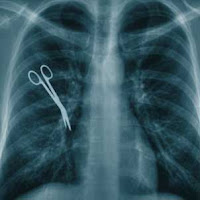 Don’t say I didn’t tell you, cos I remember talking about this ad infinitum over the last two years. But the medical care you knew and loved is going away. And many reading this are perfectly happy about this, but not baby-boomers retiring to rural areas. Yes, seems that primary care physicians are hard to find in many small towns, and it looks like it may worsen.
Don’t say I didn’t tell you, cos I remember talking about this ad infinitum over the last two years. But the medical care you knew and loved is going away. And many reading this are perfectly happy about this, but not baby-boomers retiring to rural areas. Yes, seems that primary care physicians are hard to find in many small towns, and it looks like it may worsen.
Baby-boomers, the 78 million Americans born between 1946 and 1964, could have difficulty finding doctors over the next twenty years. With Medicare cuts proposed targeted under the federal health care overhaul, the shortage is likely to get even worse, said Mark Pauly, professor of health care management at the University of Pennsylvania. Primary care physicians out in rural areas make less per procedure in the Medicare schedule than their city counterparts, and with a cut in the already small reimbursement inherent in the system, doctors are running to the city in droves. Well, no duuuuuuhhhh…….
A 2009 survey of doctors in the Oregon Medical Association showed 19.1 percent of Oregon doctors had closed their practices to Medicare, and 28.1 percent had restricted the numbers of Medicare patients.
 The good news is that we knew it was coming, right? Well, there’s at least one solution–Nurse Practitioners (NP). NPs can do medical exams, prescribe some drugs, give shots, take vitals, and so forth…sort of a doctor/nurse hybrid. It’s smart, and I like it. I have worked with a few NPs, and what they can do—their scope—along with their competency, is top-notch. It’s like an all-in-one healthcare practitioner. I have lots of respect for NPs.
The good news is that we knew it was coming, right? Well, there’s at least one solution–Nurse Practitioners (NP). NPs can do medical exams, prescribe some drugs, give shots, take vitals, and so forth…sort of a doctor/nurse hybrid. It’s smart, and I like it. I have worked with a few NPs, and what they can do—their scope—along with their competency, is top-notch. It’s like an all-in-one healthcare practitioner. I have lots of respect for NPs.
Now for you boomers who have decided to retire to rural communities, you may find that you’ll need to pay some things out of pocket. Just come to terms with that: health care is changing, and there’s no need to protest by neglecting your body. I know we all want to get what has been promised to us, and you know what…we just may, in fact, get that…but if for any reason it doesn’t go back to the way it once was, you still need your health. So take care of it, both by participating in health-enhancing behaviors (like seeing a chiropractor–also a primary care doctor, but sans prescription rights), but also by seeing your NP…hey many of them make house calls.
Listen, our old institutions are changing–in some ways for the better (like you taking a proactive approach to your health), and in others for the worse (quality will ultimately suffer, in my opinion). We’ve got to have creative solutions to these new problems–the easiest is to continue taking care of your body. But creating a self-funded medical account will probably be a wise move too.






















